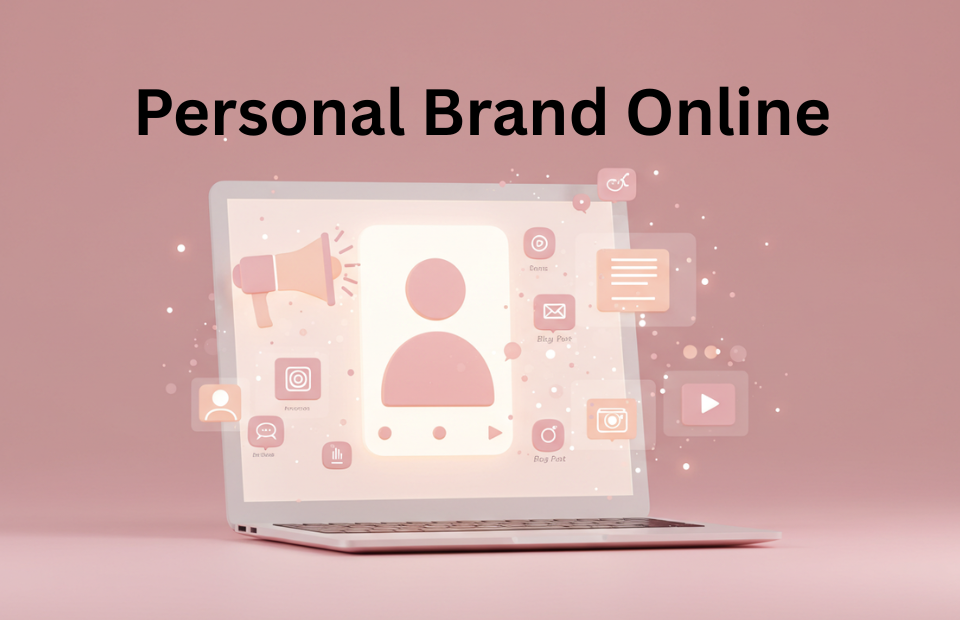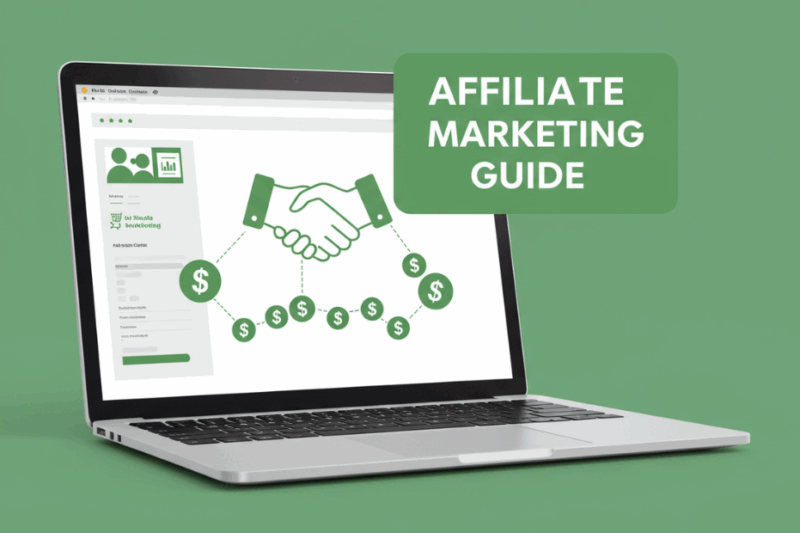In today’s digital age, building a personal brand online is no longer reserved for influencers or celebrities. Whether you’re a professional, entrepreneur, freelancer, or simply someone looking to establish credibility in your field, creating a strong online presence can open doors to new opportunities. The good news? You don’t need millions of followers or viral content to make an impact. Here’s how you can build a personal brand online—authentically and effectively—without being an influencer.

1. Define Your Brand Identity
Before you start posting or creating content, take the time to define who you are and what you want to be known for. Ask yourself these questions:
- What are my core values?
- What skills or expertise do I bring to the table?
- What topics am I passionate about?
- Who is my target audience?
Your personal brand should reflect your authentic self. For example, if you’re a marketing professional, your brand might center around sharing insights on digital strategies, creative campaigns, or industry trends. By narrowing your focus, you can position yourself as an expert in a specific niche rather than trying to appeal to everyone.
2. Choose the Right Platforms
You don’t need to be active on every social media platform. Instead, focus on the ones that align with your goals and audience. Here’s a quick guide:
- LinkedIn: Ideal for professionals and thought leaders. Share insights, articles, and industry updates.
- Twitter (X): Great for engaging in conversations and sharing quick thoughts or news.
- Instagram: Perfect for showcasing visual content like designs, photos, or personal projects.
- Medium or a Personal Blog: A great platform for long-form content where you can dive deep into topics.
- YouTube or Podcasts: If you’re comfortable with video or audio, these platforms are excellent for storytelling and building trust.
Choose one or two platforms to start with and build your presence consistently.
3. Create High-Value Content
Content is the cornerstone of any personal brand. However, you don’t need flashy videos or perfectly curated photos to make an impact. Focus on quality and value:
- Share actionable tips and advice.
- Write about lessons learned from your experiences.
- Post case studies or success stories.
- Curate industry news and add your perspective.
For example, if you’re a software developer, you could write blog posts about solving common coding challenges or share insights on new technologies. If you’re a creative professional, showcase your work and explain your creative process.
The key is to provide content that resonates with your audience and solves their problems.
4. Engage Authentically
Building a personal brand isn’t just about broadcasting your message; it’s about building relationships. Engage with others by:
- Commenting thoughtfully on posts in your industry.
- Sharing other people’s content and adding your perspective.
- Responding to comments and messages promptly.
Authentic engagement shows that you’re approachable and genuinely interested in connecting with others. Over time, this will help you build trust and credibility.
5. Leverage Storytelling
People connect with stories, not just facts or achievements. Share your journey—both the successes and the challenges. For example:
- Talk about how you overcame obstacles in your career.
- Share lessons from a failed project and what you learned.
- Highlight moments that shaped your professional path.
Storytelling humanizes your brand and makes it relatable. It also helps people remember you and feel connected to your message.
6. Network Strategically
Building a personal brand isn’t just about creating content—it’s also about connecting with the right people. Join online communities, attend virtual events, or participate in webinars related to your field. Networking can help you:
- Gain visibility within your industry.
- Collaborate with other professionals.
- Learn from peers and mentors.
Remember, networking isn’t about self-promotion; it’s about building mutually beneficial relationships.
7. Be Consistent
Consistency is key when it comes to building a personal brand. This doesn’t mean you need to post every day, but you should maintain a regular schedule so people know what to expect from you. Consistency also applies to your messaging—ensure that your tone, values, and content align across all platforms.
For example, if you’re positioning yourself as a sustainability advocate, make sure every piece of content reflects that mission, whether it’s a LinkedIn post or an Instagram story.
8. Showcase Your Expertise
One of the best ways to build credibility is by demonstrating your expertise. Here’s how:
- Write guest articles for reputable websites in your industry.
- Speak at virtual events or webinars.
- Publish an eBook or whitepaper on a topic you’re knowledgeable about.
- Create how-to guides or tutorials.
By sharing your knowledge in various formats, you’ll establish yourself as a go-to resource in your field.
9. Monitor Your Online Presence
Your personal brand isn’t just what you say—it’s also what others say about you. Regularly monitor your online presence by:
- Googling yourself to see what appears.
- Setting up Google Alerts for your name.
- Reading reviews or comments about your work (if applicable).
If there’s outdated or negative information online, take steps to address it. Maintaining a positive digital footprint is crucial for building trust.
10. Be Patient
Building a personal brand takes time—it’s not something that happens overnight. Stay consistent, keep providing value, and continue engaging with your audience. Over time, people will begin to recognize you as an authority in your niche.
Conclusion
You don’t need to be an influencer with millions of followers to build a successful personal brand online. By focusing on authenticity, value-driven content, and meaningful connections, you can create a brand that resonates with your audience and reflects who you are. Remember, the goal isn’t just visibility—it’s credibility and impact.
So start small, stay true to yourself, and watch as your personal brand grows into something powerful and rewarding.


